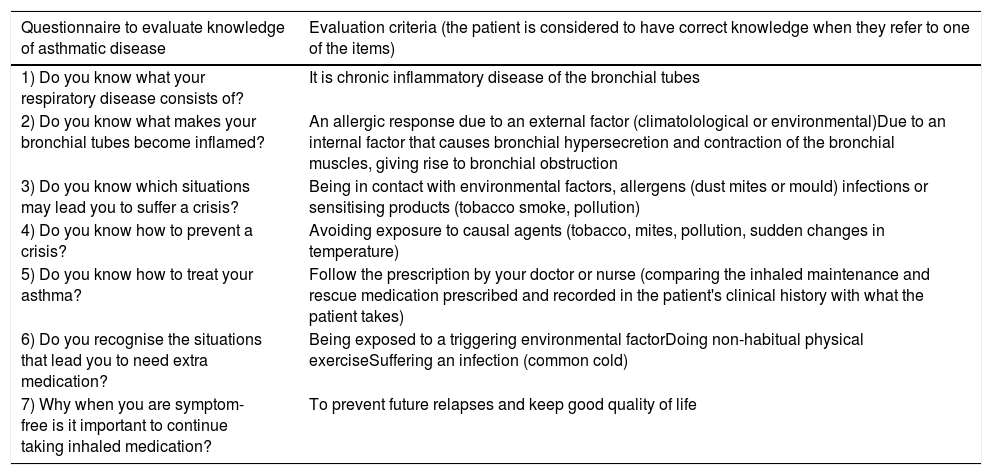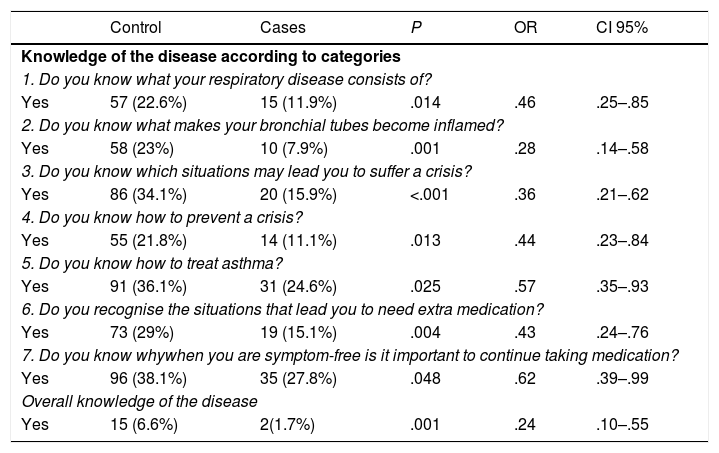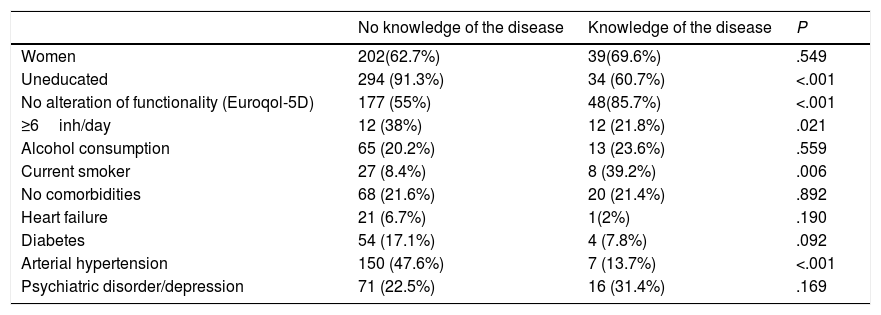To assess whether knowledge of asthmatic disease may be a protective factor against the risk of community-acquired pneumonia (CAP) in people with asthma over the age of 18 who receive inhaled treatment.
MethodObservational study of cases and controls in a population with asthma. One hundred and twenty-three people with asthma diagnosed with pneumonia were recruited according to clinical and radiological criteria (cases), and 246 people with asthma not diagnosed with pneumonia during the past year (controls), matched by age. The main study factor was the assessment of knowledge about asthmatic disease through an ad hoc questionnaire, with seven questions and two possible answers (known, unknown).
ResultsThe bivariate analysis shows that knowledge of asthmatic disease has a statistically significant association as a protective factor of CAP. In the multivariate analysis, it shows an association of knowledge of asthmatic disease as a protective factor of CAP (OR=.24), regardless of age, level of studies, functionality, and severity of asthma.
ConclusionsA good knowledge of asthmatic disease reduces the risk of CAP in asthmatic patients using inhaled treatment.
Evaluar si el conocimiento de la enfermedad asmática puede ser un factor protector frente al riesgo de neumonía adquirida en la comunidad (NAC) en las personas con asma mayores de 18 años que reciben tratamiento inhalado.
MétodoEstudio observacional de casos y controles en población con asma. Se reclutaron 123 personas con asma diagnosticadas de neumonía por criterios clínicos y radiológicos (casos) y 246 personas con asma no diagnosticados de neumonía durante el último año (controles), apareados por edad. El principal factor de estudio fue la valoración del conocimiento sobre la enfermedad asmática mediante un cuestionario ad hoc, de 7 preguntas con 2 posibles respuestas (conoce, no conoce).
ResultadosEl análisis bivariado muestra que el conocimiento de la enfermedad asmática tiene una asociación estadísticamente significativa como factor protector de NAC. En el análisis multivariante muestra una asociación del conocimiento de la enfermedad asmática como factor protector de NAC (OR=0,24), independientemente de la edad, nivel de estudios, funcionalidad y gravedad del asma.
ConclusionesUn buen conocimiento de la enfermedad asmática permite reducir el riesgo de NAC en pacientes asmáticos con tratamiento inhalado.











